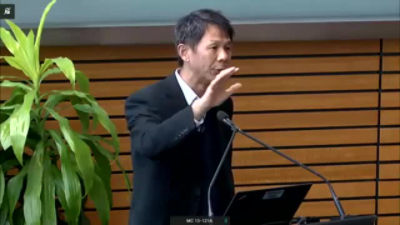Historically, conflicts and large shocks have played a key role in long-term development, leaving important institutional legacies that shape modern development outcomes.
In this talk, World Bank economist Colin Xu will draw on recent studies of the long-term impact of historical conflicts and other large shocks to show how they affect long-term demographic transitions and economic transformations. Examples include the impact of the Black Death on the Malthusian transition in Europe, the emergence of accountability in England, the impact of the Taiping Rebellion on ChinaˇŻs regional development and local state capacity, the divergence of state capacity between China and Japan starting from the mid-19th centuries, and the impact of variations in local accountability around the time of the founding of the PeopleˇŻs Republic of China (i.e., 1949) on Chinese politics and growth in the past half century.
A key finding that emerges from these examples is that large demographic shocks (such as famines and large wars), coupled with the opportunities created by trade and technological change, often spur important demographic transitions and institutional changes (such as decentralization and the emergence of accountability), which result in long-term benefits for development.



